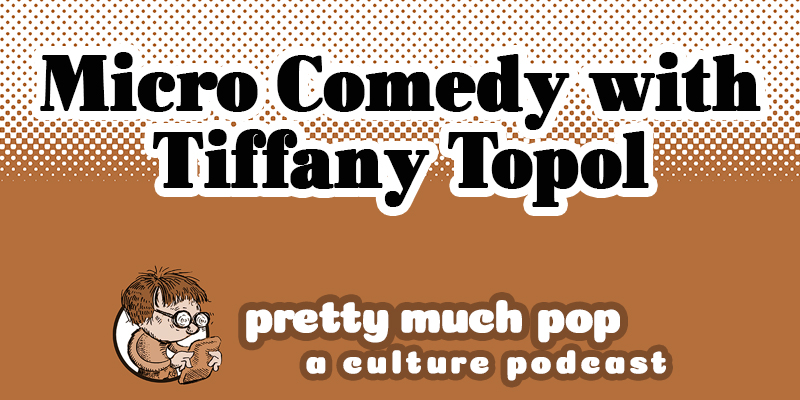
Does removing gatekeepers mean a more distributed comic landscape, or does it inevitably end with a small number of comics dominating the world? The Internet means that people can and do judge comics based on very short clips, but also makes it easy to follow the activities of someone you discover that you like.
Tiffany comes not from stand-up but from music theater, and is active in creating character-based comedy and novelty songs for Instagram, YouTube, etc. She joins your hosts Erica Spyres, Mark Linsenmayer, and Brian Hirt to explore the types of short-form humor and viewing habits that grow out of video created for TikTok, Snapchat, and other platforms. What’s the creator’s relation to the audience? Social media blurs the line between constructed bits and extemporized commentary. It’s often reacting to current events, yet stays posted long after. “Going viral” is not typically the result of mere organic sharing or chance, and some comics (and their consultants) have really studied the medium to find out what appeals and how to get the word out.
We touch on Carmen Lynch, Sarah Cooper, Eva Victor, Bowen Yang, Coincidance, Miranda Sings, LockPickingLawyer, Jimmy Slonina, AskChickie, and more.
Watch Tiffany’s Fragile White Sadness. And her ode to Disney Plus. Our Long November has passed, thank goodness.
Tiffany also recommends Jen Tullock, Josh Ruben, Jordan Firstman, Megan Stalter, Cole Escola, Crawford Millham Horton, Benito Skinner, Inappropriate Patti, Advent Carolendar, and Marc Rebillet.
Read: “These Comedians Are Using TikTok to Create Some of the Internet’s Funniest (And Wokest) Content)” by Kat Curtis.
Hear more of this podcast at prettymuchpop.com. This episode includes bonus discussion you can access by supporting the podcast at patreon.com/prettymuchpop. This podcast is part of the Partially Examined Life podcast network.
Pretty Much Pop: A Culture Podcast is the first podcast curated by Open Culture. Browse all Pretty Much Pop posts.
What Has the Internet Done to Comedy? A Pretty Much Pop Culture Podcast Discussion (#74) is a post from: Open Culture. Follow us on Facebook, Twitter, and Google Plus, or get our Daily Email. And don't miss our big collections of Free Online Courses, Free Online Movies, Free eBooks, Free Audio Books, Free Foreign Language Lessons, and MOOCs.
from Open Culture https://ift.tt/2WHNZTA
via Ilumina
Comments
Post a Comment